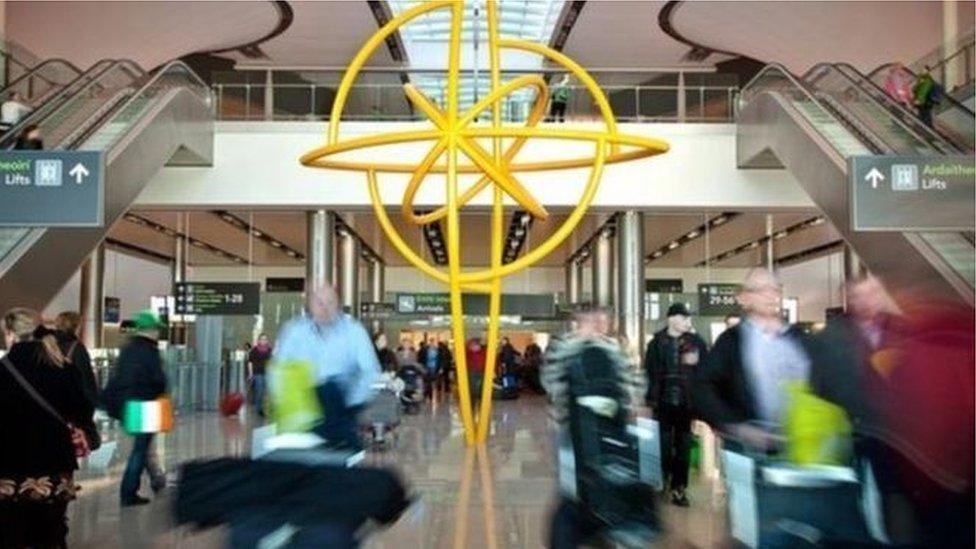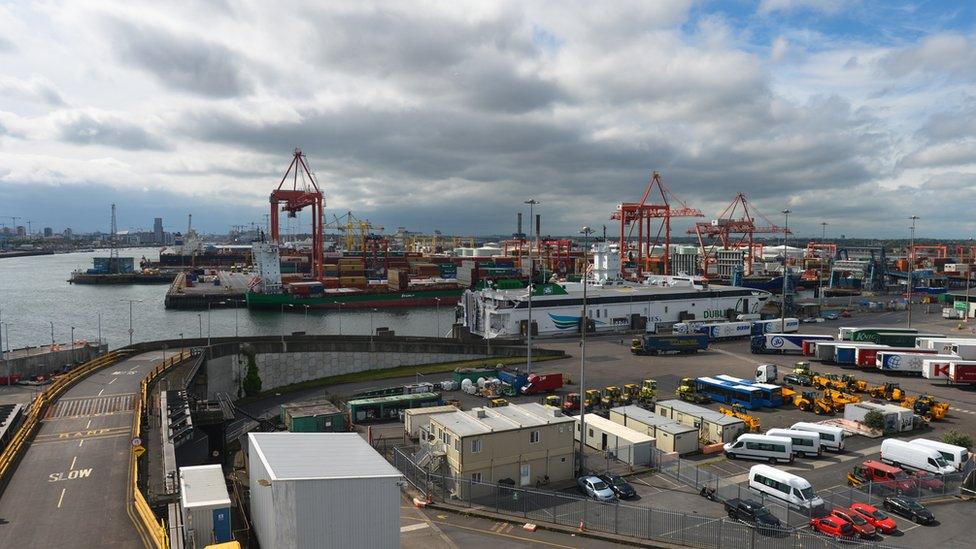Coronavirus: Third of Dublin Airport passengers do not fill out isolation form
- Published

More than a third of passengers arriving into Dublin Airport over a six-day period did not complete a form indicating where they would be staying.
The Irish government has asked all those travelling from another country to self-isolate for 14 days on arrival due to coronavirus., external
Passengers travelling to Ireland are asked to fill out the form, which includes name, address and number., external
However it is not mandatory to do so.
Some 34% (670 people), arriving at Dublin Airport over a six-day period between 28 April and 3 May did not complete the form at all.
The Irish Department of Justice (DoJ) also confirmed that of those people who did fill in the form and were asked to self isolate, 36% (231 people) arriving at Dublin Airport did not respond to follow-up calls.
The figure for those coming into Dublin Port was 26%.
Most of the people who come through Dublin Port are supply chain workers and are exempt.
"The operation of the new requirements is currently being analysed and reviewed by government officials in the context of potential new regulations to govern this area", a DoJ spokesman said.
"Work is well under way to examine the drafting of such Regulations to underpin the administrative requirements now in place," he added.

Dublin Port is a major cargo hub
Those who fail to answer initial phone calls are followed up with repeated further telephone contacts.
The first calls are made two days after passengers have arrived.
For any passengers staying in Ireland for up to 14 days or more, a second call will be made on day 10 to ensure they are still at the address provided and self-isolating.
There are a limited number of exempt categories of passengers, for example supply chain workers (such as pilots, hauliers or maritime crew members) or passengers who are transiting en-route to another jurisdiction including Northern Ireland.
Details from other airports and ports such as those Rosslare, Shannon and Cork are awaited.
Meanwhile, Taoiseach (Irish PM) Leo Varadkar has told the Dáil (Irish Parliament) coronavirus could have been in Ireland as early as late last year or the beginning of January but more research is needed.
The first official coronavirus case was confirmed in the Republic of Ireland on 29 February.
Mr Varadkar, however, also told the Dáil he was confident phase one of easing restrictions in the country can go ahead on 18 May.
He says a final decision would be made on Friday 15 May.
He added that the country was increasing its testing capacity to 12,000 tests a day and by mid-May the aim is to have capacity of 15,000 per day.
Last week it was announced those over 70 in the country who have been cocooning in their homes because of Covid-19 can now go out and exercise, as part of a roadmap for lifting the current restrictions.
- Published5 May 2020
